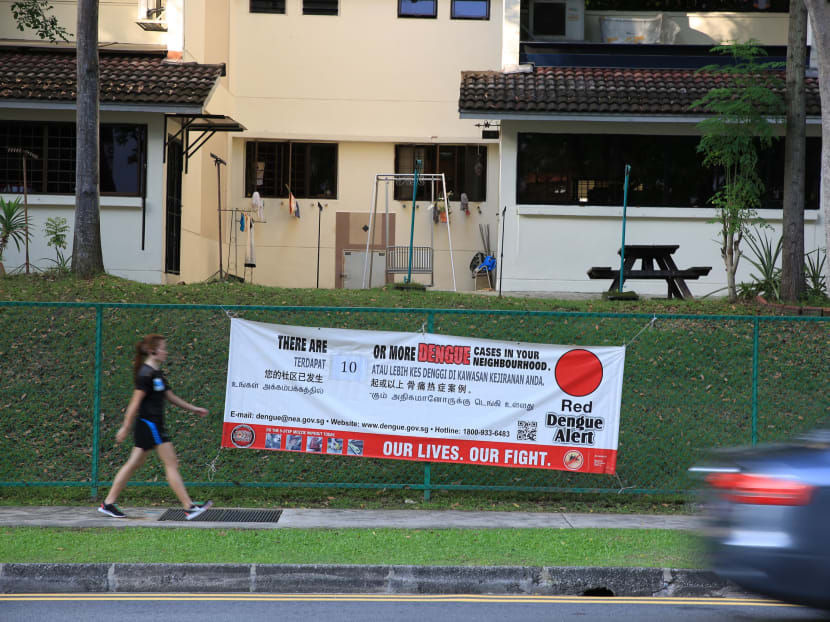63-year-old woman third to die from dengue fever this year
SINGAPORE — A 63-year-old Singaporean woman living in Bedok died on Thursday after she came down with dengue fever and was admitted to Changi General Hospital on March 9.

A banner alerting residents of the number of dengue cases in the neighbourhood in front of Shunfu Ville, along Shunfu Rd. Photo: Koh Mui Fong
SINGAPORE — A 63-year-old Singaporean woman living in Bedok died on Thursday after she came down with dengue fever and was admitted to Changi General Hospital on March 9.
This is the third death recorded this year from the mosquito-borne disease.
Earlier in February, a 67-year-old Singaporean man living at Toa Payoh Lorong 4 died after being warded in Tan Tock Seng Hospital, and in January, a 47-year-old Singaporean man living at Marsiling Rise died in Khoo Teck Puat Hospital when his condition deteriorated.
Like the second victim, the home of the woman in this latest case — Bedok North Street 3 — is not an active dengue cluster, the health authorities said.
However, vector control operations are being carried out to kill adult mosquitoes and destroy any potential breeding habitats.
The Health Ministry and National Environment Agency, in notifying the public on the latest death in their joint statement on Thursday (March 10), urged residents here to make a collective effort to help stop mosquito breeding and end the disease transmission cycle.
Residents are also urged to cooperate fully and allow NEA officers to inspect their premises and to spray insecticide to kill any infective mosquitoes.
The number of dengue cases in 2016 may exceed 30,000 — higher than the record number in 2013 when 22,170 cases were reported — unless immediate action is taken, NEA said.
The high number of dengue cases expected in 2016 is due to a number of contributing factors, including warmer temperatures, increase in the mosquito population and a change in the predominant circulating virus. “With the threat of Zika virus present, it is even more critical to reduce the mosquito population through removing the source of mosquito breeding. If we can bring down the mosquito population, we will not only mitigate the dengue situation but at the same time, prevent the spread of Zika virus if it reaches Singapore,” the authorities said in their statement.
Inverting pails and plant pot plates, changing water in vases regularly, and capping bamboo pole holders when they are not in use are some of the things residents can do at home to prevent mosquito breeding.
Those showing symptoms suggestive of dengue should see a doctor early for early diagnosis.






